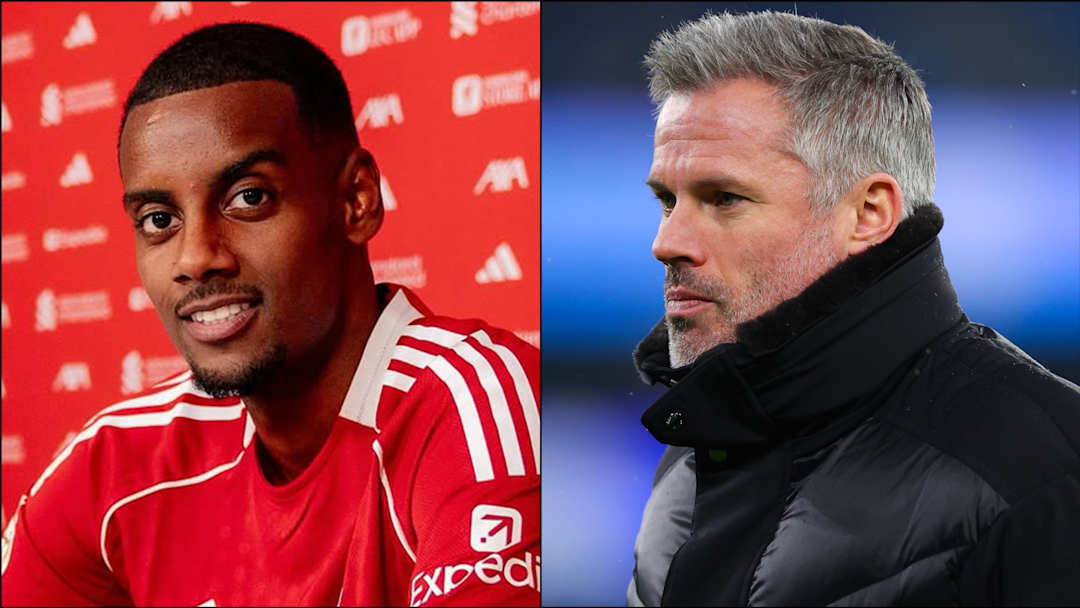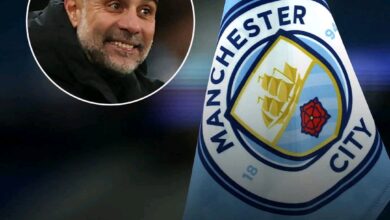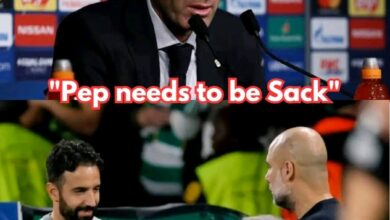Sad Day’—Liverpool Legend Delivers Surprising Reaction to Alexander Isak Arrival

Jamie Carragher has never been a man to sugarcoat his words, and when it comes to Liverpool, the club he gave his heart and soul to as a player, his voice always carries extra weight. That is why his reaction to Alexander Isak’s record-breaking arrival at Anfield came as such a surprise to many. Instead of simply joining in the celebrations, instead of praising the £125 million signing as a move that would transform Liverpool’s attack, Carragher focused on something else—the way Isak forced his exit from Newcastle United. For Carragher, the manner of the transfer mattered just as much as the outcome, and he warned that football was heading into dangerous territory if players continued down this path.
To understand why Carragher called it a “sad day,” we need to rewind. This summer was not just about Liverpool making big-money moves; it was also about players across Europe pushing the limits of how transfers happen. Isak was one of the most high-profile names, and his decision to go on strike at Newcastle to force the move shocked many. He wasn’t alone, though. Yoane Wissa at Brentford did something similar, refusing to stay quiet until he secured his own move to Newcastle. Viktor Gyökeres at Sporting CP also took matters into his own hands, missing pre-season training and earning fines before his eventual switch to Arsenal. Football, it seemed, had entered a new era where players were ready to rebel openly to get what they wanted.
Carragher, speaking on Sky Sports, did not hold back. He contrasted Isak and Wissa with Marc Guéhi, the Crystal Palace captain who behaved with professionalism throughout the window. Guéhi kept playing, kept training, kept serving Palace, even though Liverpool had been pushing hard to sign him. In the end, Palace couldn’t find a replacement in time, and Guéhi’s move collapsed. He remained at Selhurst Park, still loved by the fans, still trusted by his manager. Carragher pointed to Guéhi as the example of how players *should* behave, and he admitted it frustrated him to see that those who went on strike got their rewards, while the one who stayed professional was left waiting.
“Other players will see this,” Carragher warned. “They will look at how Isak and Wissa behaved, and they’ll think that’s the way to do it. That’s dangerous for football, because if everyone starts refusing to play to get a move, it damages the game.” For Carragher, this was not just about one summer or one player; it was about the culture of football shifting in the wrong direction.
Carragher’s comments touched a nerve because they came at a moment when Liverpool fans were celebrating. Isak’s arrival was supposed to be pure joy. After all, Liverpool had been crying out for a centre forward. Darwin Núñez was gone, Luis Díaz was gone, and Arne Slot needed a marquee striker to lead the line. Isak was that man—tall, skilful, clinical, and still young enough to give Liverpool years of service. The signing was not just a boost; it was a statement, proof that Liverpool had the ambition to defend their Premier League crown. Yet Carragher refused to ignore the way the deal had been done.
To him, football is bigger than one club or one trophy. It is about respect between players, clubs, and fans. He admitted he understood why Isak wanted the move. Liverpool is one of the biggest clubs in the world, and the chance to play at Anfield, to fight for titles, and to earn a bigger salary is hard to resist. But Carragher’s problem was with the method. “If a club is paying you thousands of pounds every week, the least you can do is train and play,” he said. “Transfers happen, and no one is against players wanting to leave. But refusing to play? That crosses a line.”
This debate struck right at the heart of modern football. Fans often complain that players are too loyal to money, too quick to push for the next big move. At the same time, clubs have always been ruthless, selling players when it suits them, sometimes without warning. The balance of power has always been fragile. But what Carragher fears is that strikes could become normal. Today it’s Isak, tomorrow it could be someone else, and soon the system could be broken.
Carragher also spoke about Guéhi, and here his tone shifted from frustration to admiration. He praised the Palace defender for handling the situation with dignity, for showing respect to his club even as Liverpool circled. Carragher admitted Guéhi will probably get his move in the next window, but for now, he remains a hero at Palace because of the way he carried himself. That, Carragher argued, is how football should work. Players can want moves, but they should never abandon their responsibilities.
Interestingly, Carragher also gave his view on the debate raging among fans—was missing out on Guéhi a bigger blow than signing Isak was a gain? Some Liverpool supporters had argued that strengthening the defence was more urgent, that Guéhi was more important. Carragher disagreed strongly. He reminded everyone that Liverpool desperately needed a striker. With Núñez and Díaz gone, the squad was short in attack. “Liverpool only had one centre forward,” he pointed out. “They had to sign one, no question. Guéhi would have been a bonus, but Isak was essential.”
This comment added another layer to the discussion. Carragher was making it clear that while he questioned Isak’s conduct, he did not doubt the importance of the signing. Liverpool needed goals, and Isak could provide them. But at the same time, he warned against celebrating too loudly without considering the bigger picture of how football transfers are changing.
It is typical Carragher—passionate, honest, and unwilling to just go with the flow. His words reminded fans that football is not just about transfers and trophies. It is also about values, about the way players treat clubs, and about the example being set for the next generation.
The timing of his comments also made them powerful. Liverpool had just pulled off one of the biggest signings in their history, and most of the focus was on the positives. But Carragher shifted the narrative, forcing fans and pundits to think about the consequences. His “sad day” remark may have sounded dramatic, but it captured a growing unease about the direction of modern football.
For Liverpool, the season ahead will be judged on results. If Isak scores goals and leads them to glory, fans will forgive the messy way the transfer happened. But Carragher’s warning will linger. If more players follow Isak’s example, if strikes become common, then this summer could be remembered not just for Liverpool’s record signing, but for the moment football changed.
For now, Isak is in red, ready to lead the line, while Guéhi remains in Palace colours, waiting for his moment. Wissa is at Newcastle, Gyökeres at Arsenal, and the cycle of transfers will keep turning. But thanks to Jamie Carragher, fans have been reminded to look beyond the headlines, to ask not just who moved where, but how it happened—and what it means for the future of the game.
Because, as Carragher said, if refusing to play becomes the norm, then football loses something precious. And that really would be a sad day.















